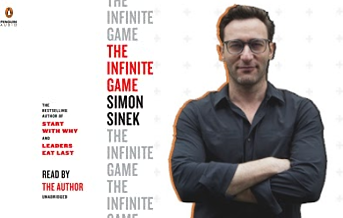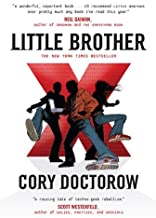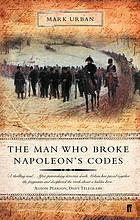|
Greetings from 53.5 ° north latitude. The week was filled with reading and guitar and little else. So really, a pretty awesome week. Reading Pile: We are just finishing up the nineteenth week of 2020, with the first week of the year being a few days short of the full seven. I'm doing well with my reading, clocking in at an average of one book per week. If I can keep it up and also finish War and Peace and The Count of Monte Cristo with those reading groups I have previously mentioned, I will read 54 books this year. That is a momentous number and would be a hard mark to surpass in my pre-retirement years.  Book #17 for 2020 was the audiobook version of Simon Sinek's "The Infinite Game". Sinek came to my attention during an executive education program I was enrolled in in 2013 - 2014. His TED talks about leadership related to his earlier books continue to be a popular favorite, wracking up millions of views. This latest book is short but worth the time. Sinek distills his thoughts about why an infinite mindset built with thoughts of the long-term and abundance is superior to a finite mindset built with only the short-term in mind and with a focus on scarcity. One quote that stuck with me was that "leaders are not responsible for results; they are responsible for the people that are responsible for the results." That is a good maxim to keep in mind while leading teams and organizations, as is Sinek's comment that we should "go slow now to stop problems later."  Book #18 for 2020 was "Little Brother" by Cory Doctorow. This was a book I decided to read with my older daughter, and it opened a lot of conversations about surveillance and the Internet, It was also about a teenage boy falling in love, so that kept me scanning a few lines ahead so that I could strategically avoid certain topics. This was my least favorite of Doctorow's books that I have read so far, mainly because I already understood the lessons he was communicating, but also because of the somewhat jingoistic references to the US Declaration of Independence. I was probably a bit overly sensitized to references to the Declaration because Sinek also raved about it in his book as the ideal infinite game. Would I recommend this book? Probably not, at least to a casual reader. Would I use it to reference the problems with surveillance technology. Sure, but something like Bruce Schneier's "Secrets and Lies" or "Data and Goliath" would be better, albeit non-fictional sources.  Book #19 for 2020 was "The Man Who Broke Napoleon's Codes" by Mark Urban. This was a historical account of George Scovell, the man that provided Wellington with vital intelligence in the war against Napoleon's army in Spain and Portgual. Scovell used captured communications to decipher both the Army of Portugal and grande ciphere used by the French. Urban was able to write the entire book from journals and official war correspondence, and so it provides an interesting portrayal of Wellington, Napoleon's brother Joseph, and the French marshals in the Iberian conflict. The marshals are shown to be vapid and selfish, and completely vested in only their own wealth and position. They are clearly not in this war for the infinite game of anyone beyond themselves. Urban also highlights the cultural and societal biases of the British gentry and of Wellington in particular, and holds that up against the barbaric behavior of the common British soldier. This was an interesting read, and especially interesting in light of the shared backdrop with War and Peace and Monte Cristo. The impact Napoleon had on Europe in the early 1800s can clearly not be overlooked. I'm glad I read this book for that reason, however, it was not as focused on George Scovell as I would have liked. I understand that Urban could only write this history from his sources, but it would have been nice to have more information about Scovell's early life or retirement years. Scovell seems like he would have been a great person to know and I would like to know more about him. This quote from Scovell definitely helped me form that opinion of him. I think it by far the most instructive part of a campaign to know why we fail; success is in the mouth of everyone to account for. --George Scovell Regardless, this is a good book both to get an idea of the mindset, diligence, and meticulousness of an early cryptographer, and to get another perspective on the Napoleonic era. New Words:
With all that reading, there are bound to be a lot of new words. fichu [ˈfiˌSHo͞o] NOUN
peignoir [ˌpānˈwär] NOUN
caisson [ˈkāˌsän, ˈkās(ə)n] NOUN
soi-disant [ˌswädēˈzäN, ˌswädēˈzän(t)] ADJECTIVE
indolent [ˈindələnt] ADJECTIVE
dilatory [ˈdiləˌtôrē] ADJECTIVE
fencible [ˈfen(t)səbəl] ADJECTIVE
yeomanry [ˈyōmənrē] NOUN historical
panegyric [ˌpanəˈjirik] NOUN
intersubjective [ˌin(t)ərsəbˈjektiv] ADJECTIVE philosophy
praxis [ˈpraksəs] NOUN formal
dialectic [ˌdīəˈlektik] NOUN
0 Comments
Your comment will be posted after it is approved.
Leave a Reply. |
Archives
April 2022
Categories
All
|

 RSS Feed
RSS Feed
